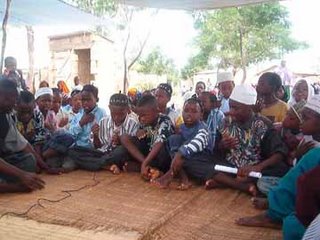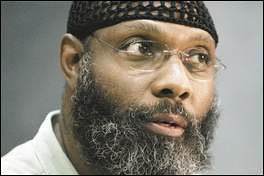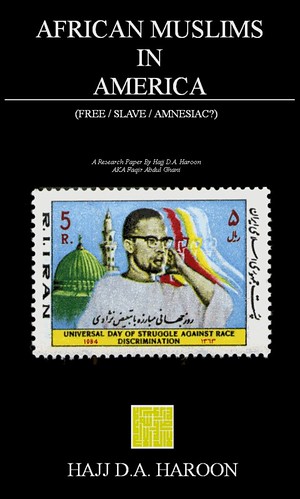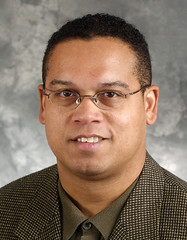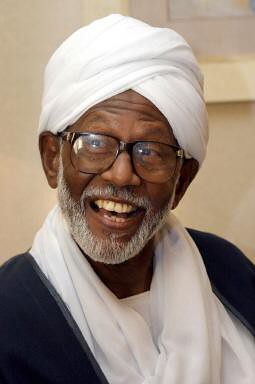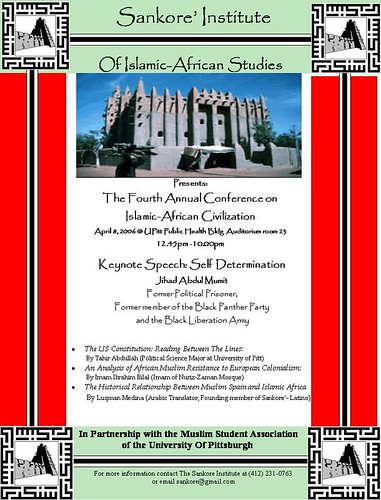Associated Press
CHICAGO — When David Kelly — aka "Capital D" — raps, he doesn't follow the mainstream mantra of women, cars and jewelry.
Instead, the Chicago rapper uses his rhymes to dish out praise for Allah, criticize the war in Iraq and blast corporate America.
Kelly is among a new group of Muslim rap artists gaining popularity among Muslim Americans looking for entertainment that reflects both their mainstream tastes and religious beliefs.
"Muslims in the United States are not going away. They're part of the culture, but they're not creating their own culture," Kelly said. "I try to show them that you can be creative, artistic, happy and still be Muslim."
Islam is not new to rap. The Nation of Islam and other nontraditional sects have influenced hip-hop through lyrics and images since the late 1970s. And Nation of Islam leader Louis Farrakhan has been mentioned and sampled in many raps.
But this new wave of Muslim-influenced music seeks to convey messages and images more in line with orthodox Islam.
"The music says I'm still an American, and I still want my culture. But I want to refine it so I can incorporate Islam into it, too," said Mike Shapiro, 23, who created the Web site www.muslimhiphop.com earlier this year. "Muslims in America and Muslim youths really need this. They don't have anyone to relate to."
Kelly recently performed before about 80 people on Chicago's South Side as part of a monthly event organized by the Chicago-based Inner-City Muslim Action Network.
Audience members sipped tea and smoothies as Kelly performed several songs from his latest album, "Insomnia." For religious reasons, Kelly performs only in venues that don't serve alcohol when he is on stage.
"His stuff is really powerful and moving," Sabah Khan, 22, said after Kelly's performance. "I think it's important to support music that's positive. People say they listen to music on the radio because they say they like the beat. But you can have a beat and the song can have a positive message."
Kelly said his music hasn't always been politically charged. The rapper, who was raised Catholic, said that before he converted to Islam four years ago, his music lacked seriousness and discipline.
"Now I have a different agenda," he said. "If I am going to put an album out, I have to say something."
That kind of message-driven music also is at the heart of Remarkable Current, an Oakland, Calif.-based record label that features several hip-hop artists. Though listeners may not realize the artists are Muslim when they first hear the music, they will notice the positive messages, founder Anas Canon said.
"I try to push an art out there that is loving and positive and a reflection of our spirituality," Canon said.
Yet Canon said he's had difficulty gaining acceptance from some in the Muslim community because of hip-hop's negative image and the debate over whether music is haram — forbidden — under Islamic law.
Abraham Marcus, a history professor at the University of Texas at Austin, said theologians have been addressing the issue of Islam and music for centuries.
"The most conservative view is music is essentially an evil force. It excites passions and incites lust," he said. "But the mainstream view is more tolerant. Mainstream authorities say music is admissible as long as it serves a good purpose."
Some of the mainstream hip-hop artists practicing orthodox Islam include Mos Def and Everlast. Others, such as Kelly, have a small but loyal following.
Not all perform in alcohol-free venues. And references to Islam vary in their music. But the list of Muslim rappers continues to grow.
"Most of the people not popular in mainstream talk more about Islam, and the artists who talk less about Islam are more popular," said Shapiro, a Los Angeles resident who created his Web site earlier this year after attending a hip-hop show at a mosque.
The site features discussion forums and music. It receives about 2,000 visitors a day, he said. "We're trying to provide a medium so Muslims can have something to do that's not in a mosque or — on the other extreme — in a bar," he said.
Kelly said that after he converted to Islam, he stopped performing while debating whether rap could co-exist with his Islamic beliefs.
The hiatus lasted nine months before Kelly reconciled morphing Islam and rap by deciding the music had to have a purpose. "Insomnia," which he released independently this fall, addresses not only Islam but also U.S. foreign policy, corporate America and the music industry.
"I wanted it to be a serious and focused album, and I know that has a lot to do with me being Muslim," he said.
Kelly said it will take orthodox American Muslims awhile to carve their own path in the hip-hop world, but he's optimistic.
"Muslims are starting to take the culture they listen to and creating their own culture in a very American way," Kelly said. "Islam hip-hop is very young in the process, and we'll have to bump heads for a while, but we'll make it."
MuslimHipHop.com:
www.muslimhiphop.comMuslim Artists Central:
www.muslimac.comInner-City Muslim Action Network (IMAN):
www.imancentral.org